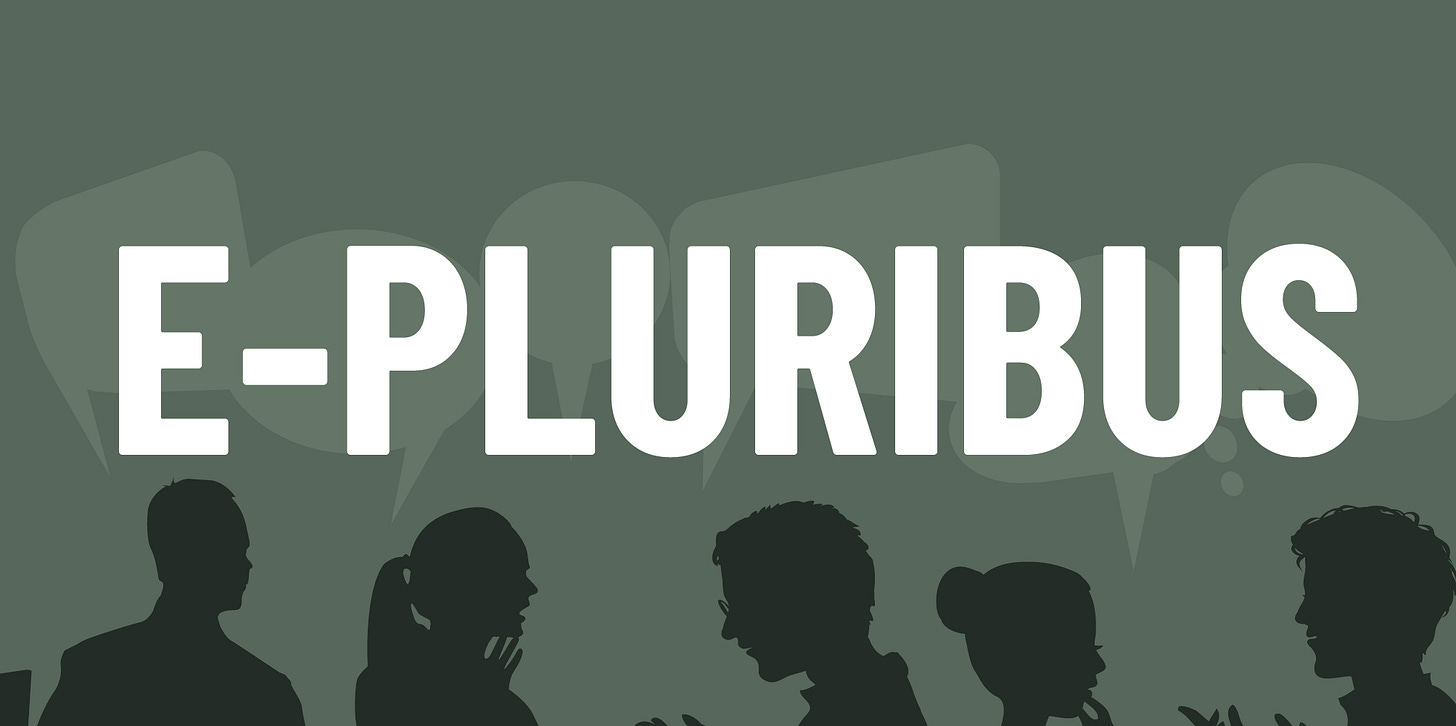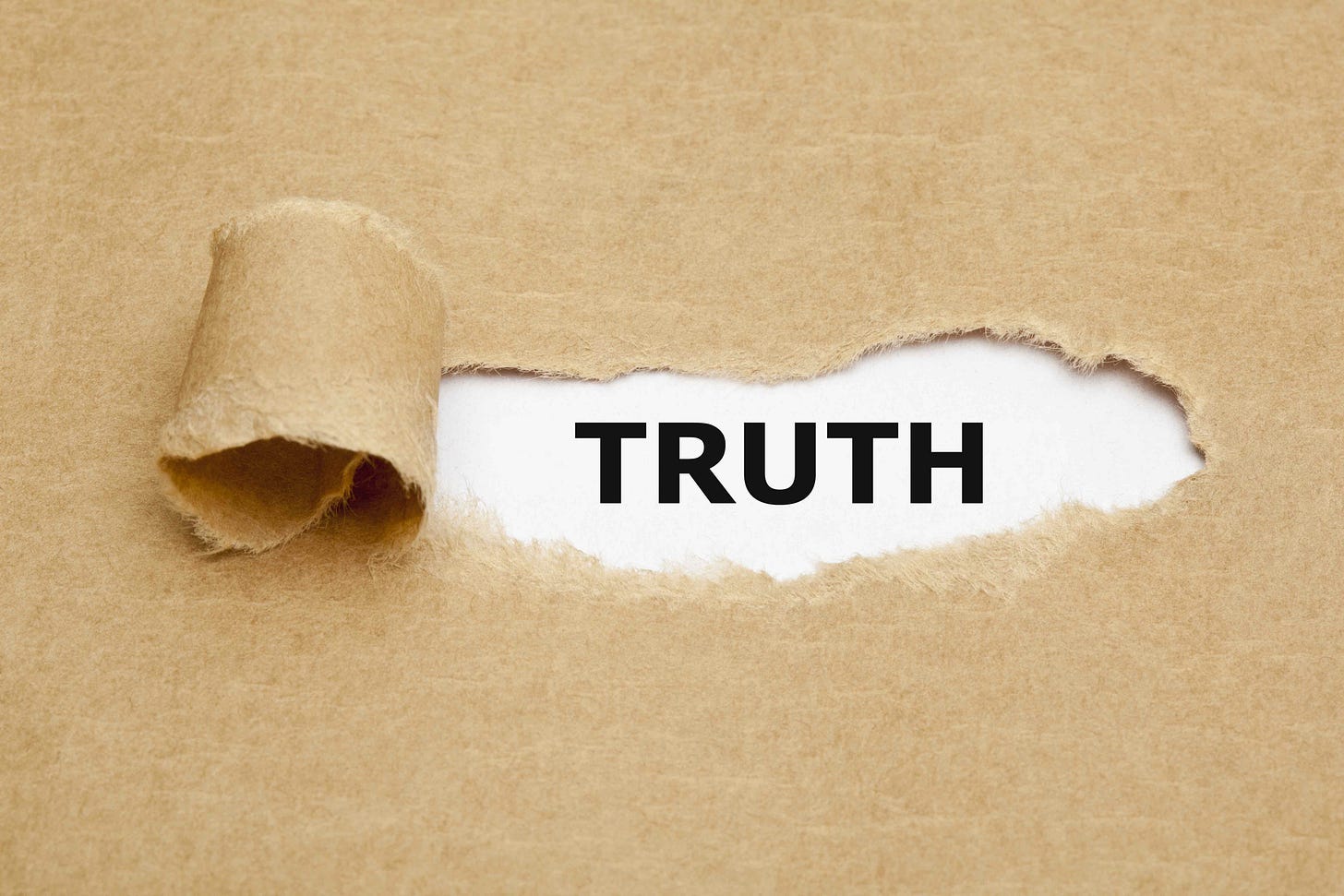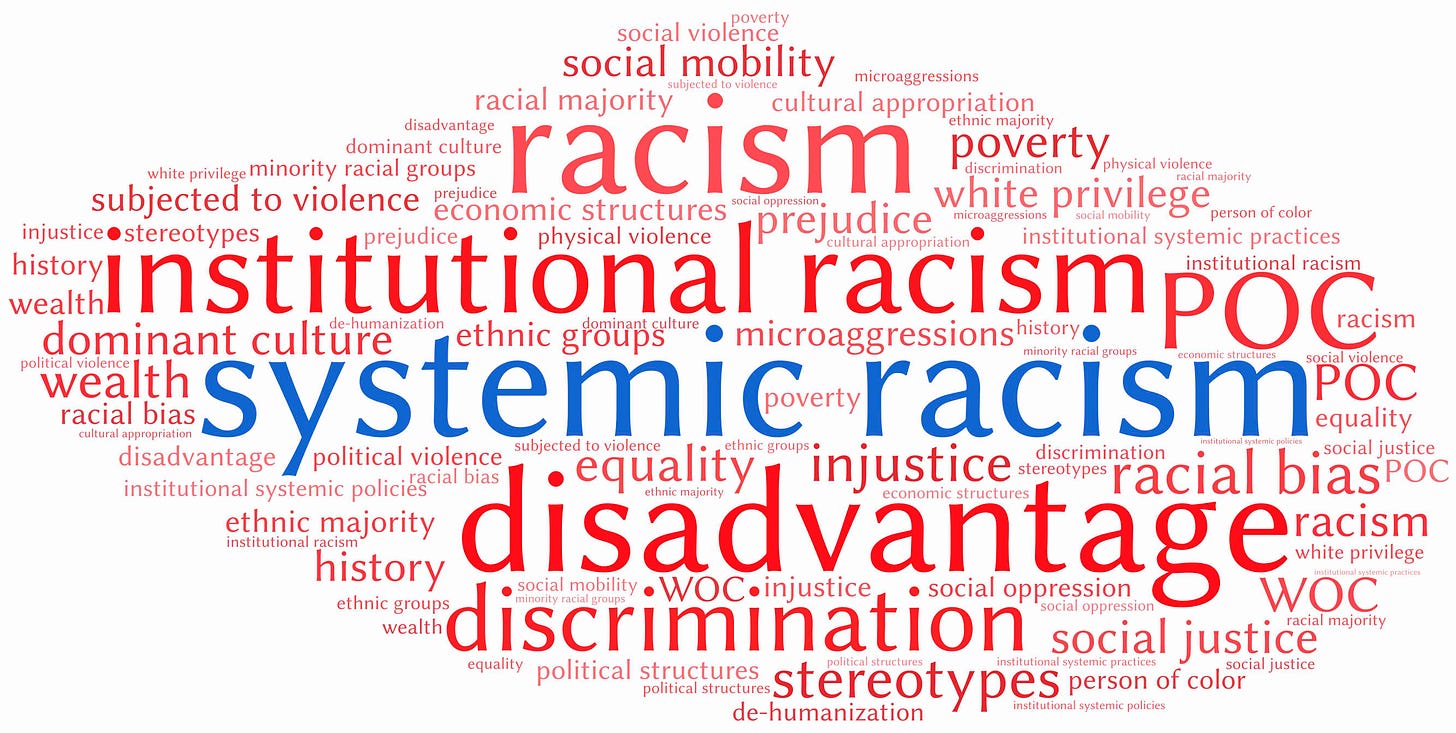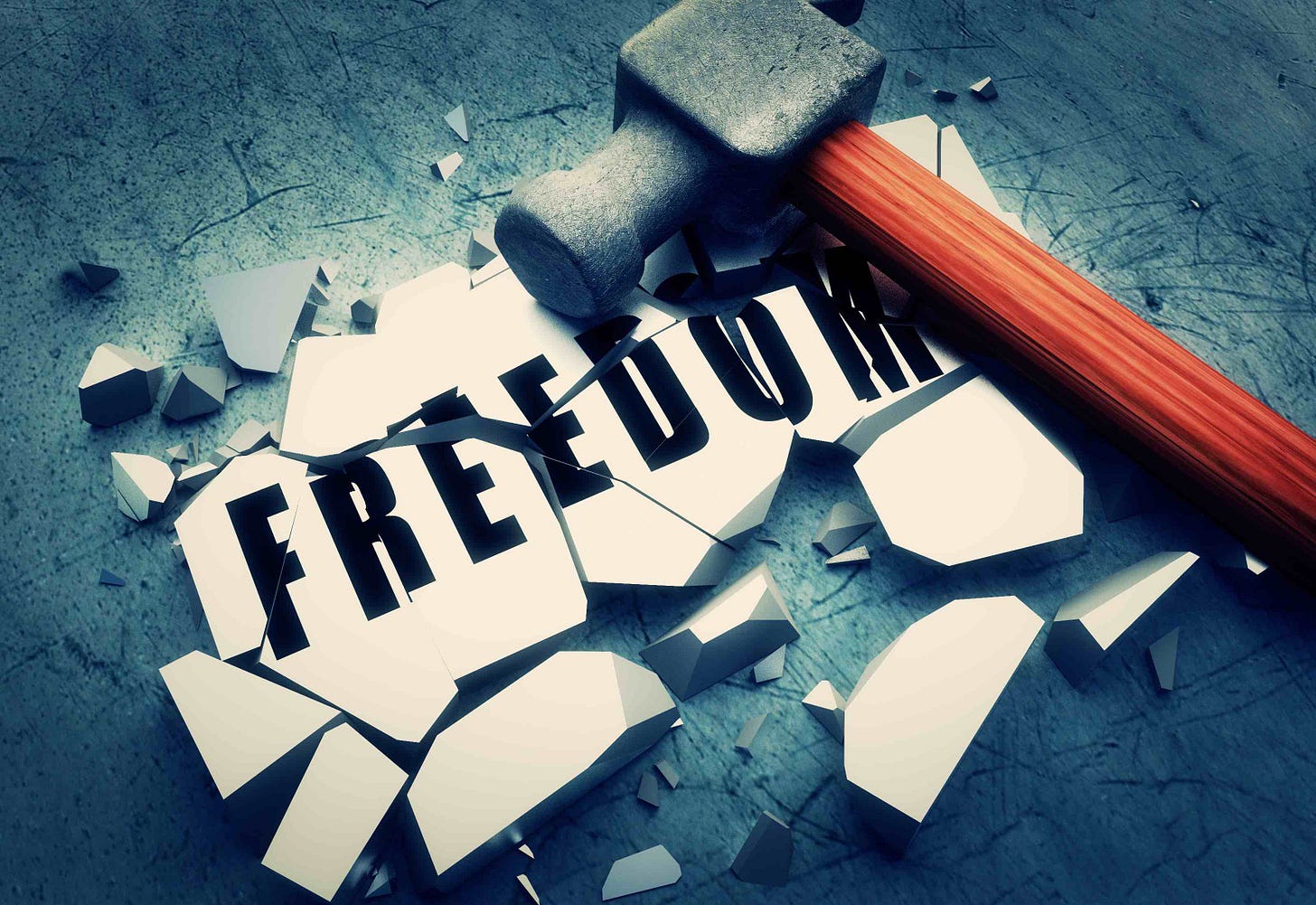E-Pluribus | July 28, 2021
Who defines truth, systemic racism as a matter of faith, and how far can the government stretch the "terrorist" label?
A round up of the latest and best writing and musings on the rise of illiberalism in the public discourse:
Jonathan Rauch: Who Gets To Decide the Truth?
For the August/September issue of Reason, Jonathan Rauch takes a long look at the development of classical liberalism, focusing on John Locke's contributions in particular. Based on Locke’s ideas, Rauch argues that while we cannot gloss over the foibles of human nature, liberalism conveys the rights and responsibilities of self-determination to everyone, not a ruling class, and we should be careful not to lose sight of the value of this egalitarianism in our current polarized environment.
In his politics, Locke was not a modern democrat. (In his day, no one was.) He accepted the authority of the British crown, and his advocacy of toleration drew the line at Catholicism and atheism. But he formulated three ideas that are foundational to political liberalism.
The first is the idea of natural rights: fundamental rules that apply to all persons from birth to death—rules that all other persons and also sovereigns and governments are bound to respect, and which are to be respected impersonally and reciprocally. Because they are natural, these rights inhere in human nature and are present in the state of nature. They provide a built-in limiting principle to the war of all against all. For Locke, the fundamental rights are life, liberty, and property (meaning not just material property but authority over one's own body and conscience). Because rights are inborn rather than earned by merit or conferred by social position, they inhere equally. Individuals are always equal in their fundamental rights, even as they differ in countless other ways.
A second foundational principle is rule by consent. Governments are not instituted by divine authority to rule the people; they are instituted by the people to enforce natural rights. If governments exceed their authority or use it to violate the people's rights, Locke argued, they lose their claim to govern and may rightly be replaced. Government is sovereign within its grant of power, but the ultimate sovereignty belongs to the governed.
Third, toleration. Religious differences had torn Europe apart, in good measure because the combatants assumed that if one religion is true, then others must be false. Because false religions endanger souls and deceive societies, they seemed intolerable. Religious war had shown how costly intolerance could be in practice, but even so, few thinkers questioned the principle that false belief was dangerous and should be stamped out. Hobbes, for example, believed that the state's stability depended on uniformity of religious belief, or at least uniformity of religious expression. Locke, by contrast, argued that force cannot save souls because it cannot change hearts—and even if it could, governments cannot be relied upon to discern religious truth. In any case, the person who worships wrongly does not injure others, and the state's business is not to save souls but to protect rights.
Read the whole thing.
Peter Savodnik: The Faith of Systemic Racism
One need not denigrate religion to acknowledge that it rests on faith; indeed, faith is integral to religion and belief in and reliance on God. Peter Savodnik writes at Quillette, however, that many who speak of “systemic racism” in America are demanding a similar attitude of belief.
[W]e are dispensing with the empirical, and conflating truth and belief, and migrating from the logical to the religious, from the rational to the arational. In the context of organized religion, we’re unbothered by arationality. We expect it. We bracket it. We say, This is separate from everything else. This is how we reconcile our technocratic and spiritual identities, the modern self and the self that stretches back to our mythical-primal state.
Until recently, this bracketing enabled us to be simultaneously logical and illogical. Logical in our everyday lives. Illogical while exercising our faith.
Alas, most major institutions in America right now are making important decisions about hiring, firing, investment, programming, content, syllabi, and so forth, on the basis of a religious claim—systemic racism permeates the whole of our existence—that is necessarily unverifiable. They are being illogical when we expect them to be logical.
The people who run these institutions, one imagines, would respond that they’re doing what the market demands of them. Their decisions, far from being illogical, are calculated and strategic. You idiot, they’d spout, we’re responding to shifting expectations. We’re acknowledging that the way we used to do things does not comport with the way we think now.
The problem is the way we think now. We are not so good at bracketing anymore. Our two selves, our modern self and our mythical-primal self, intertwine and bleed together. We like to believe that the modern self will soon obliterate the mythical-primal self, that an ever expanding reason will inevitably banish from the human experience any vestige of the old drug. That we will finally molt our ancient, religious longings.
How funny, the conceit of the modern.
Read it all at Quillette.
Michael Tracey: In Radical Affront To Civil Liberties, The Government Is Branding Non-Violent Jan. 6 Defendants "Terrorists"
A few months ago on Twitter, I noted in regard to the January 6th Capitol riot that an incompetent insurrection is still an insurrection. But Michael Tracey complains that the government is stretching the events of that day and the actions of those involved beyond all bounds of reason by labeling even non-violent participants as “terrorists.” Tracey is concerned that, in an effort to make an example of those involved in trying, however ineffectually, to overturn the results of the 2020 election, the federal government is going to impinge on principles of civil liberties meant to protect us all.
[…] The Government admits that Hodgkins’ actual conduct does not meet any legally cognizable definition of “terrorism,” but nonetheless argues that Hodgkins was “part” of a domestic terrorism event — i.e., partook in the commission of a terrorist attack — and is therefore effectively a terrorist! They’re more or less saying, “We can’t meet the legal burden to actually prove that he’s guilty of terrorism, so we’re just going to kind of vaguely assert as much in this slippery, unfalsifiable way.” Expanding the applicability of “terrorism” in such a manner is self-evidently menacing to civil liberties — it’s essentially the Government claiming the ability to accuse you of terrorism without ever having to clear the due process hurdles of legally establishing your guilt. Sedky added:
“Framing”? “Context”? What? When did “domestic terrorism” become some kind of interpretive literary principle? These are weasel-words, the vagueness of which enable the Government to level one of the most extraordinary accusations it could possibly level against a citizen — that he is a terrorist — without having to subject that designation to meaningfully adversarial scrutiny. It’s all the more galling, because again, Hodgkins was not even alleged to have committed any physical violence. “The Government nonetheless recognizes that Hodgkins did not personally engage in or espouse violence or property destruction,” wrote Sedky in a sentencing memo. But in the “context” of Jan. 6 — the hyper-charged, seismically hyperbolic political climate that these proceedings are taking place within — the “symbolism” of the affair has taken primacy.
Read it all.
Around Twitter
A lot of praise going around for Bari Weiss’s podcast telling the story of Maud Maron:
Glenn Greenwald on the ACLU’s latest position that parts of the Constitution’s Bill of Rights are racist:
Sarah McLaughlin highlights some pushback against the Communist Chinese government’s repression of Taiwan and Tibet:
















